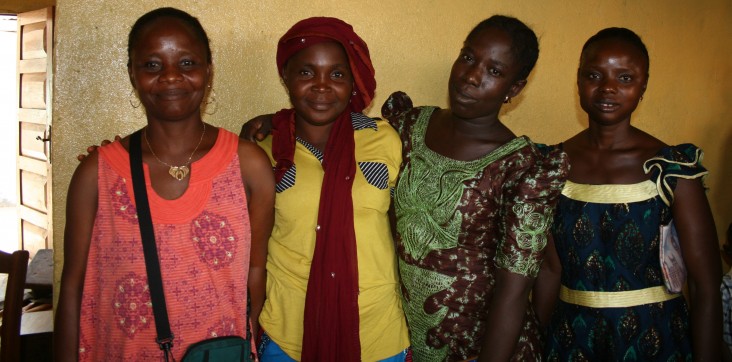Speeches Shim

Sierra Leone faces several problems regarding various forms of sexual violence, including domestic violence, sexual assault, rape of adults and minors, marital rape, and school-related sexual abuse, as well as supposedly harmful practices such as female genital mutilation (FGM). The voices of Sierra Leonean women are ignored in the debate about their own sexual and reproductive health. Their voices are being drowned out by the resistance of conservative religious groups and reluctant government officials. Moreover, the patriarchal structures in place hamper the debate, while at the same time restricting the effective implementation of the positive laws and regulations already in place.
Women account for 52 per cent of the total population in Sierra Leone yet occupy less than 20 percent of elected positions. Their voice, visibility, participation and representation in elective and appointment positions remain very low compared to men. Some of these challenges include lack of economic independence, high illiteracy and entrenched customs and traditions and the lack of confidence to vie for public positions
Through the “Protection of Women through Empowerment and Response (POWER)” project, USAID is working to support up to 1,000 women and girls in rural communities within the eastern Kenema district. The goal of the project is to empower women and girls to pursue their potential, free from violence and inequality, focusing on increasing their economic resources, train them on how to voice their priorities and participate in decisions that affect themselves and their homes and strengthen gender-based violence (GBV) response, coordination and referral pathways.
Women and Economic Growth
Women in Sierra Leone have always made vital contributions to the economy and have often played a substantial role in the subsistence of their families. In the rural labor force, women provide more than 60% of farm labor for food production, but this forms part of a larger power dynamic problem as men still possessed greater access to ownership and control of the production, reducing women to a marginal position. In recent years the government and its partners, including USAID have been focusing on providing women with access to financial services as it has the potential to act as a catalyst for enhancing women’s economic, social and political empowerment. It helps mobilize their productive capacity to alleviate poverty and to maximize economic output.
Women as promoters of better health services
Majority of the beneficiaries and agents of change of USAID-funded health activities are women. Health promoters, many of them women, work with lead mothers to promote pro-nutrition actions among pregnant and lactating mothers – for their own and their children’s benefit – and to encourage mothers to attend prenatal and postnatal care. Women are key targets for hygiene education in communities, which is helping to reduce the incidence of waterborne diseases.


Comment
Make a general inquiry or suggest an improvement.